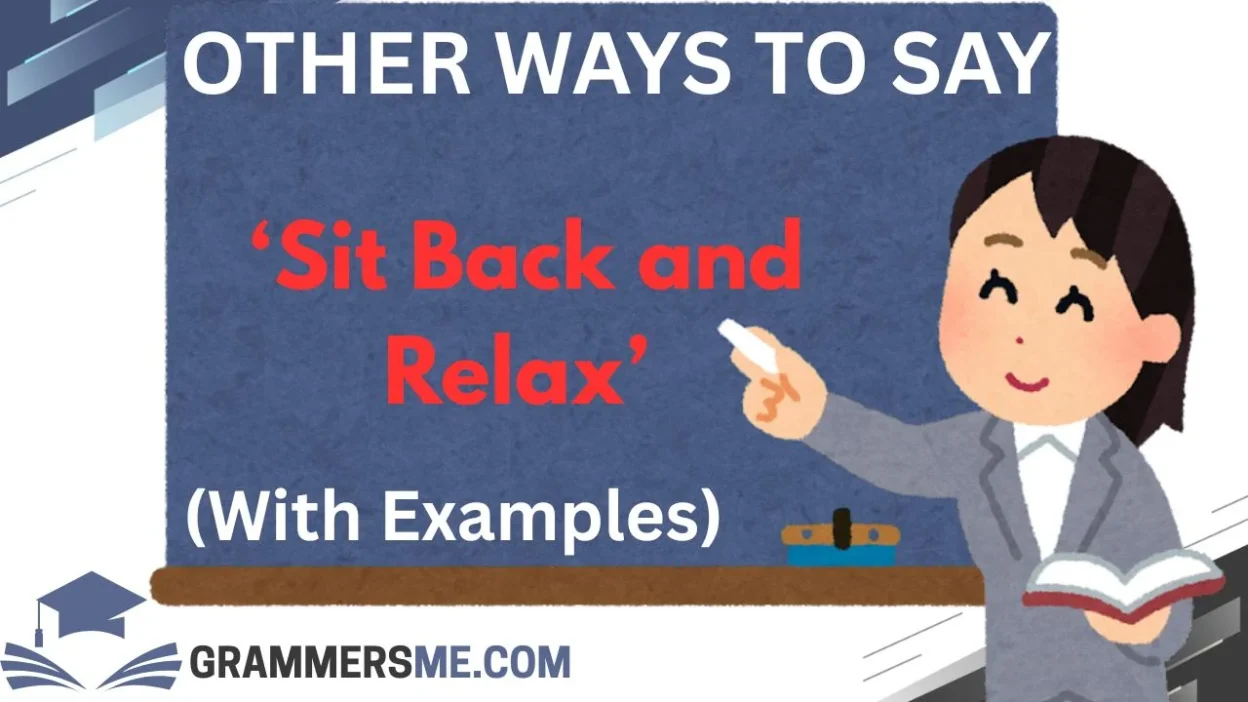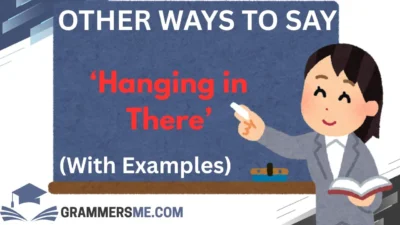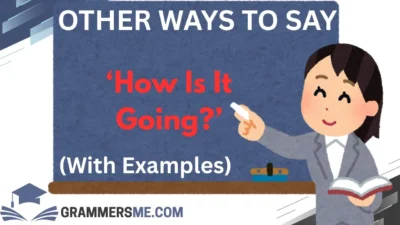Sometimes, telling someone to “sit back and relax” can feel too common or impersonal—especially when we truly want to help them unwind, feel cared for, or take a well-deserved break. Whether you’re offering comfort to a friend, easing tension at work, or just trying to brighten someone’s day, finding the right words can go a long way. Here are 30 thoughtful and empathetic alternatives to say “sit back and relax” that add warmth and depth to your message.
What Does “Sit Back and Relax” Mean?
Meaning: “Sit back and relax” is a gentle invitation to let go of stress, take a break, and enjoy a moment of peace. It’s commonly used in casual and comforting situations.
Explanation: This phrase is often shared when encouraging someone to stop working, worrying, or rushing—and instead take a moment to breathe and feel at ease. It’s kind, light, and reassuring.
Tone: Warm, casual, comforting.
Is It Professional/Polite to Say “Sit Back and Relax”?
Yes, but with nuance. In most informal or semi-professional settings, it’s a perfectly acceptable phrase. For example, a manager might say this during a team celebration. But in formal settings, it might be better to use a more polished alternative like “Feel free to take a moment to unwind.”
1. Take a Moment for Yourself
Meaning: Encouragement to pause and prioritize self-care.
Explanation: This phrase is thoughtful and empathetic, gently reminding someone that it’s okay to step back and focus on their own well-being.
Example: “You’ve been doing so much lately. Take a moment for yourself—you deserve it.”
Best Use: When someone is overwhelmed or constantly giving to others.
Not Use: Avoid in situations where urgency is high or time-sensitive decisions are needed.
2. Put Your Feet Up
Meaning: Encourages someone to rest and unwind.
Explanation: A cozy, visual phrase that immediately conjures relaxation. It’s casual and often said in friendly or family contexts.
Example: “Long day? Go ahead and put your feet up for a bit.”
Best Use: Great for home, informal chats, or to comfort friends and family.
Not Use: Too casual for professional or formal writing.
3. Unwind and Take It Easy
Meaning: Encourages a calm, leisurely mindset.
Explanation: This phrase emphasizes slowing down both physically and mentally. It offers permission to stop overthinking and enjoy the moment.
Example: “Unwind and take it easy tonight—you’ve earned a break.”
Best Use: Ideal after a stressful event, project, or emotional moment.
Not Use: Avoid if the person needs to take action urgently.
4. You Deserve a Break
Meaning: Acknowledge someone’s efforts and suggest rest.
Explanation: This phrase not only invites rest but also validates their hard work or emotional effort.
Example: “You’ve been handling everything so well. You really deserve a break.”
Best Use: For friends, coworkers, or partners going above and beyond.
Not Use: Avoid when someone hasn’t been active or is looking for motivation instead of rest.
5. Take It From Here
Meaning: An offer to take over so someone else can rest.
Explanation: This phrase is active and supportive, telling someone you’ll handle things so they can pause.
Example: “I’ve got this—go rest. I’ll take it from here.”
Best Use: When offering practical support in team or family settings.
Not Use: Don’t say it unless you truly plan to help or follow through.
6. Kick Back and Enjoy
Meaning: An easygoing suggestion to fully enjoy the moment.
Explanation: This phrase has a light, cheerful tone—great for parties, holidays, or moments of celebration.
Example: “Everything’s ready. Just kick back and enjoy!”
Best Use: When the mood is light and festive.
Not Use: Can sound dismissive in serious or sensitive situations.
7. Give Yourself Permission to Pause
Meaning: An empowering reminder to take a break.
Explanation: This is especially powerful for people who feel guilty resting. It gives them emotional permission to stop and breathe.
Example: “You’ve been carrying so much. Give yourself permission to pause.”
Best Use: With people who struggle to prioritize self-care.
Not Use: Avoid when speaking to someone who’s actively procrastinating.
8. Let Go for a Little While
Meaning: Encouragement to release stress or control briefly.
Explanation: This phrase invites emotional release and peace, especially helpful during anxious or chaotic times.
Example: “You don’t need to hold onto everything. Let go for a little while.”
Best Use: During or after emotional conversations.
Not Use: Avoid if the person needs to stay alert or focused.
9. Catch Your Breath
Meaning: A kind way to suggest a short pause to recharge.
Explanation: This simple phrase shows empathy and acknowledges exhaustion.
Example: “You’ve been on the go all day—take a moment to catch your breath.”
Best Use: When someone is visibly stressed or tired.
Not Use: Avoid when someone is in the middle of an intense or serious task.
10. Savor the Stillness
Meaning: An invitation to enjoy peace and quiet.
Explanation: This poetic phrase adds a touch of mindfulness, perfect for encouraging someone to find peace in the present.
Example: “The house is quiet—savor the stillness.”
Best Use: Perfect for quiet evenings, meditative moments, or journaling prompts.
Not Use: Avoid in noisy, busy environments or chaotic situations.
11. Let Yourself Be Still
Meaning: A mindful prompt to embrace rest and quietness.
Explanation: This phrase goes deeper than just relaxing—it’s about allowing yourself to stop and breathe without guilt or rush.
Example: “You’ve done more than enough today. Let yourself be still.”
Best Use: Ideal in emotionally supportive conversations or during reflective moments.
Not Use: Avoid in high-energy environments or when motivating action.
12. Soak It All In
Meaning: Encouragement to fully enjoy and appreciate the present.
Explanation: This phrase suggests not just relaxing but embracing the moment with all your senses.
Example: “This is your time—soak it all in.”
Best Use: During vacations, nature walks, or peaceful celebrations.
Not Use: Avoid in fast-paced, distracted situations.
13. Feel Free to Take It Easy
Meaning: A polite way of offering someone the space to rest.
Explanation: This phrase feels respectful, gentle, and non-pressuring.
Example: “Everything’s handled—feel free to take it easy for the rest of the day.”
Best Use: Great in professional and personal settings when inviting someone to slow down.
Not Use: Avoid when direct action is required or when urgency is present.
14. There’s No Rush
Meaning: A soft way to take pressure off someone.
Explanation: This tells someone they can move at their own pace, without stress or deadlines.
Example: “Take your time—there’s no rush at all.”
Best Use: Perfect for easing nerves in decision-making or after a stressful period.
Not Use: Not suitable when deadlines or punctuality truly matter.
15. Treat Yourself to a Breather
Meaning: An uplifting suggestion to pause and recharge.
Explanation: This phrase feels like a small gift—reminding someone they’re worthy of a break.
Example: “You’ve earned it—treat yourself to a little breather.”
Best Use: Ideal when someone’s been hustling nonstop.
Not Use: Avoid saying this if someone is in the middle of a crisis or doesn’t have time.
16. You’ve Earned Some Downtime
Meaning: Recognizing effort while encouraging rest.
Explanation: It feels validating and fair—acknowledging their hard work before suggesting rest.
Example: “Honestly, you’ve earned some downtime. Enjoy it.”
Best Use: Perfect after a big project or emotional milestone.
Not Use: Avoid if someone hasn’t really done much—they might feel awkward.
17. Recharge Your Batteries
Meaning: A casual way of saying, “rest up.”
Explanation: A modern, familiar phrase that paints a picture of replenishing energy.
Example: “You’ve been going non-stop. Go recharge your batteries tonight.”
Best Use: Best used in friendly, relaxed conversations.
Not Use: Can sound too informal in professional or serious situations.
18. Take the Weight Off Your Shoulders
Meaning: Encouragement to release emotional or physical burdens.
Explanation: This phrase has a healing and compassionate tone. It acknowledges stress and gently invites relief.
Example: “You don’t have to carry it all. Take the weight off your shoulders for a while.”
Best Use: Beautiful in heartfelt conversations, especially when someone is overwhelmed.
Not Use: Avoid in lighthearted or humorous contexts—it may feel too heavy.
19. Pause and Just Be
Meaning: An invitation to exist without doing anything.
Explanation: This phrase is about presence—encouraging someone to simply exist without pressure or productivity.
Example: “No expectations, no plans—pause and just be.”
Best Use: Ideal in self-care or mindfulness conversations.
Not Use: May sound too abstract for highly practical people or task-oriented moments.
20. Let the World Wait a Minute
Meaning: A poetic way to give someone a moment away from life’s demands.
Explanation: This phrase gives permission to prioritize peace over productivity.
Example: “Whatever’s out there can wait. Let the world wait a minute.”
Best Use: Perfect for deep moments with friends, family, or journaling.
Not Use: Avoid when urgency or deadlines are truly pressing.
21. Rest Easy
Meaning: A soothing phrase that invites peace.
Explanation: Often used in reassuring contexts, this phrase encourages someone to relax without worry.
Example: “Everything’s okay. You can rest easy now.”
Best Use: Comforting after stressful situations or tough conversations.
Not Use: Avoid overusing it or it may lose emotional impact.
22. Settle In and Get Cozy
Meaning: Encouragement to physically and emotionally relax.
Explanation: It brings a cozy, intimate vibe, perfect for comfort and warmth.
Example: “The blankets are ready—settle in and get cozy.”
Best Use: Great for evenings, cold days, or quiet moments at home.
Not Use: Not suitable in professional or formal settings.
23. Ease Into It
Meaning: A gentle nudge to relax gradually.
Explanation: Rather than jumping into relaxation, this phrase suggests easing tension gently.
Example: “It’s been a hectic day. Just ease into the evening.”
Best Use: When transitioning from a stressful to a peaceful space.
Not Use: Too soft for high-energy or fast-paced moments.
24. Take the Day Off (Mentally or Physically)
Meaning: A supportive suggestion to disconnect and unwind.
Explanation: This can mean physically not working—or simply not stressing for a while.
Example: “You need a break. Take the day off—mentally and physically.”
Best Use: Perfect when someone is nearing burnout.
Not Use: Avoid saying it if time off isn’t realistic for them.
25. Let Yourself Be Cared For
Meaning: An invitation to allow others to support and comfort.
Explanation: This phrase acknowledges the need to receive, not just give.
Example: “You’re always helping others. Let yourself be cared for this time.”
Best Use: Beautiful in close relationships or emotional support situations.
Not Use: Avoid with strangers or new acquaintances—it may feel too intimate.
26. Drift for a While
Meaning: An ethereal way of suggesting emotional or mental rest.
Explanation: This gentle, dreamy phrase paints a picture of floating, freeing the mind.
Example: “Don’t think too hard—just drift for a while.”
Best Use: In artistic or peaceful moments, before sleep or after deep talks.
Not Use: Avoid during goal-setting or motivational moments.
27. Breathe It All Out
Meaning: A calming phrase to let go of stress and tension.
Explanation: This phrase combines mindfulness and release. It encourages someone to exhale everything they’ve been holding in.
Example: “Close your eyes and breathe it all out. You’re safe.”
Best Use: Wonderful for moments of anxiety or overwhelm.
Not Use: Can feel too intimate or meditative in lighthearted situations.
28. Everything Else Can Wait
Meaning: A clear prioritization of rest and well-being.
Explanation: This lets someone know that rest is more important than tasks at the moment.
Example: “Put it all down. Everything else can wait.”
Best Use: Use when someone is feeling pulled in many directions.
Not Use: Avoid if there’s a time-sensitive commitment.
29. Slow Down and Breathe
Meaning: Encouragement to ground themselves and find calm.
Explanation: This is both a physical and emotional prompt. It helps someone center themselves gently.
Example: “Hey, it’s okay. Slow down and breathe.”
Best Use: In emotional support, anxiety relief, or before a big moment.
Not Use: Not ideal when urgency or motivation is the goal.
30. Let the Moment Hold You
Meaning: A poetic reminder to feel safe, still, and supported.
Explanation: This phrase is emotionally rich and deeply empathetic—reminding someone they don’t have to hold it all themselves.
Example: “No pressure. Just let the moment hold you.”
Best Use: Perfect for times of grief, healing, or deep reflection.
Not Use: Avoid when light tone or quick action is more appropriate.
Conclusion
Finding the right words to express care and calm can transform the way we connect with others—and ourselves. Whether you’re offering comfort to a loved one, encouraging someone to pause, or simply looking for ways to express warmth with more depth, these 30 alternatives offer meaningful options. As someone who’s leaned on phrases like these in friendships, therapy sessions, and even leadership roles, I’ve seen firsthand how small shifts in language can have a powerful emotional impact.
Choose what fits the moment—and remember: sometimes the kindest thing you can say is, “Take your time. I’ve got you.”
FAQs
1. Is it okay to say “sit back and relax” in a professional setting?
Yes, in informal professional settings. But alternatives like “Feel free to take a moment” may sound more polished.
2. What’s a good way to tell someone to relax without sounding dismissive?
Use empathetic phrases like “You deserve a break” or “Let yourself be still”, which show care, not indifference.
3. How can I gently encourage someone to take a mental break?
Try using “Catch your breath” or “Take the day off—mentally” for a kind, understanding tone.
4. What should I say instead of “relax” to someone anxious?
Say something grounding like “Slow down and breathe” or “Let the moment hold you”—they feel safer and less commanding.
5. Can these phrases be used in emails or texts?
Absolutely! Most of them work beautifully in written form. For example, “You’ve earned some downtime—take care of yourself today.”




